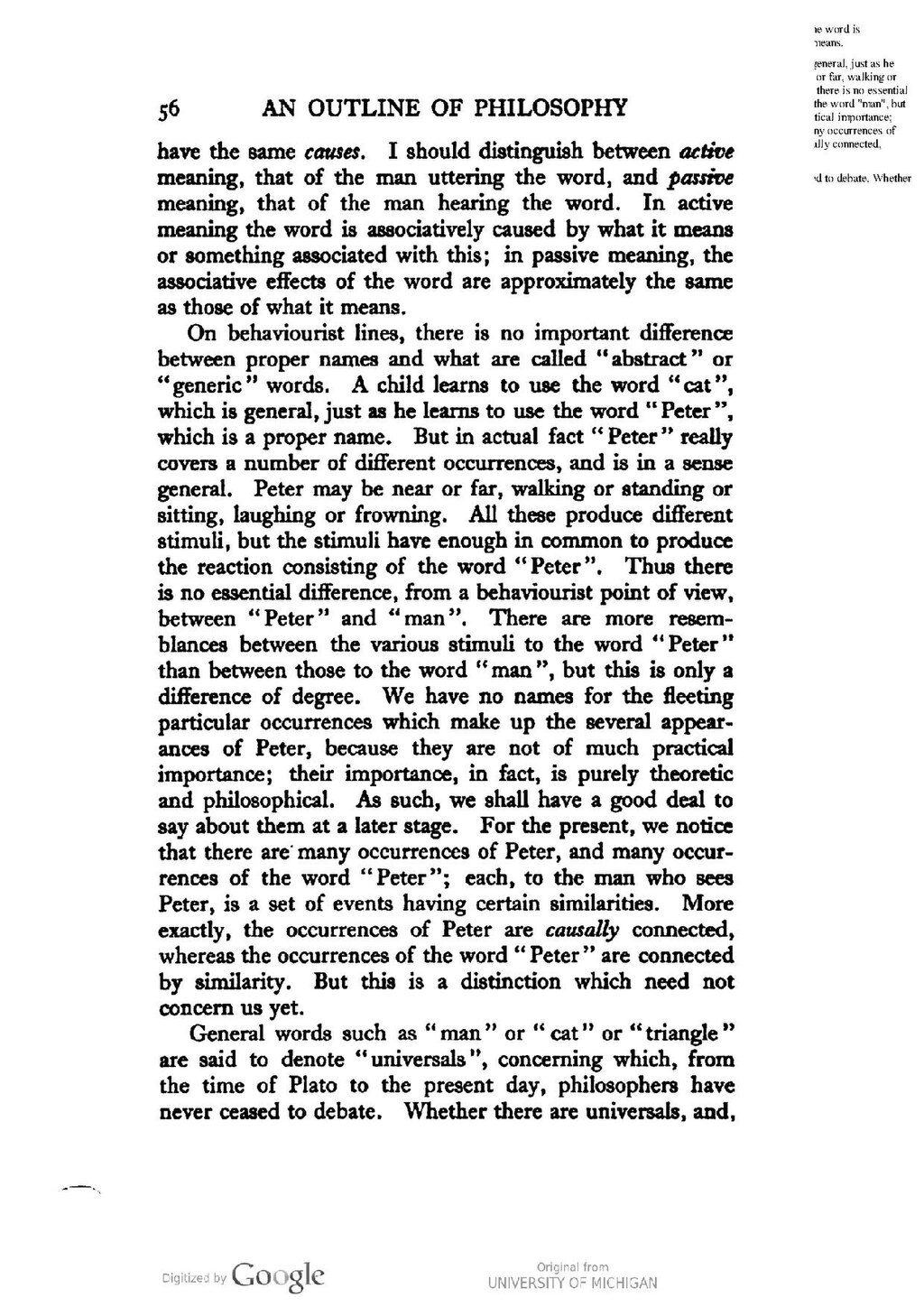have the same causes. I should distinguish between active meaning, that of the man uttering the word, and passive meaning, that of the man hearing the word. In active meaning the word is associatively caused by what it means or something associated with this; in passive meaning, the associative effects of the word are approximately the same as those of what it means.
On behaviourist lines, there is no important difference between proper names and what are called "abstract" or 'generic" words. A child learns to use the word "cat", which is general, just as he learns to use the word "Peter", which is a proper name. But in actual fact "Peter" really covers a number of different occurrences, and is in a sense general. Peter may be near or far, walking or standing or sitting, laughing or frowning. All these produce different stimuli, but the stimuli have enough in common to produce the reaction consisting of the word "Peter". Thus there is no essential difference, from a behaviourist point of view, between "Peter" and "man". There are more resemblances between the various stimuli to the word "Peter than between those to the word "man", but this is only a difference of degree. We have no names for the fleeting particular occurrences which make up the several appearances of Peter, because they are not of much practical importance; their importance, in fact, is purely theoretic and philosophical. As such, we shall have a good deal to say about them at a later stage. For the present, we notice that there are many occurrences of Peter, and many occurrences of the word "Peter"; each, to the man who sees Peter, is a set of events having certain similarities. More exactly, the occurrences of Peter are causally connected, whereas the occurrences of the word "Peter" are connected by similarity. But this is a distinction which need not concern us yet.
General words such as "man or cat" or "triangle" are said to denote "universals", concerning which, from the time of Plato to the present day, philosophers have never ceased to debate. Whether there are universals, and,
